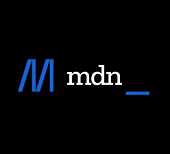| Introducing The MDN Front-End Developer Curriculum |
| Written by Nikos Vaggalis | |||
| Tuesday, 31 October 2023 | |||
|
MDN has another initiative to get developers up-to-date with the skills the industry looks for when looking to hire front-end web developers. The Core skills of Coding aside, the skill set presented includes soft skills, knowledge of a typical development environment and learning how you can expand your knowledge and develop specialities. As a matter of fact this skill set is not just desired of front end developers, but any developer out there, if you take the coding stack of html/javascript/css out and replace it with any other stack, say for backend development. This is something we explored in Why Software Engineering Will Never Die in which I looked at a study that examines how graduates can become job ready and found that what the job market nowadays requires from candidates is: Research, development, soft skills, requirements gathering and analysis, documentation, agile methodology, project management, teamwork and permanent communication between all members, tools, software integration, application synchronization, security, coding. It requires technically well-prepared graduates with good soft skills and a holistic experience about the paths followed today by software companies. Yes, coding alone won't cut it anymore. The MDN guide does not get into detail, but has got a few recommendations for the soft skills part. To begin with: Students should get into the mindset of constant learning. The web is constantly evolving and technologies and trends are always changing, and they need to constantly update their knowledge to keep up. For that you have to:
Together with the recommendations for topics related to the setup and usage of the computer systems used to implement websites/apps, this advice concludes the first part of the curriculum, The Precursor. The other two parts of the curriculum are: Core modules: Topics that every web developer should have a good grounding in. This includes all the information they need to design and build a basic, accessible website/app that follows modern best practices, and manage and deploy their code using a tool like GitHub. Optional extension modules: These "extension" topics constitute useful additional skills to learn as web developers start to expand their knowledge and develop specialisms. Of course, it is the Core that is most important and it lists the essential skills required:
Extensions, then goes through topics like:
The curriculum is hosted on Github and while feature-complete and providing a holistic overview of the skills that all front end devs should posses, is invites suggestions from the community, asking it for its feedback:
So while enjoying the lecture you can also suggest new topics or improvements for it to be refined. Perfect! More InformationMDN front-end developer curriculum Related ArticlesWhy Software Engineering Will Never Die
To be informed about new articles on I Programmer, sign up for our weekly newsletter, subscribe to the RSS feed and follow us on Facebook or Linkedin.
Comments
or email your comment to: comments@i-programmer.info |
|||
| Last Updated ( Tuesday, 31 October 2023 ) |


